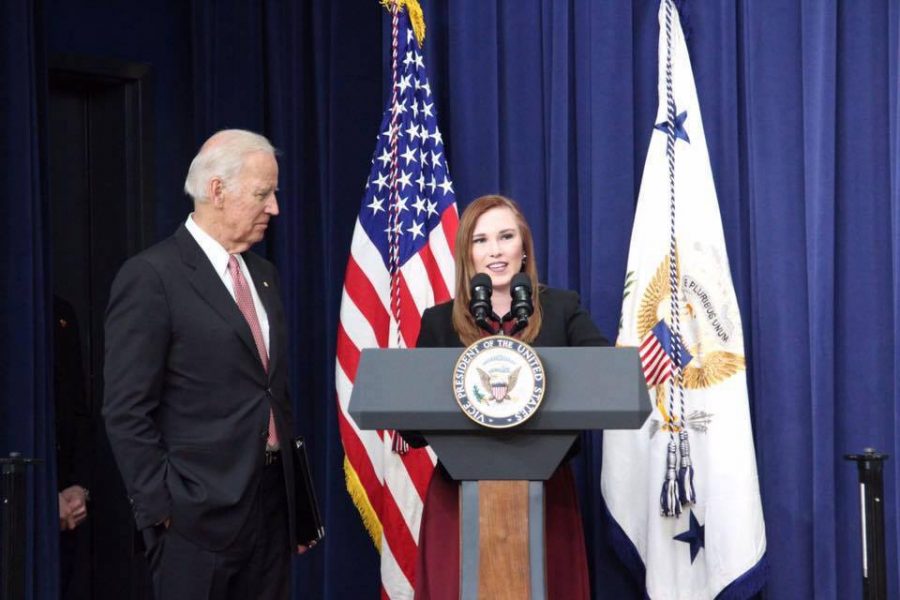While many students were home or on vacation over winter break, Julianne Skrivan was at the White House. On Jan. 5, the media art, film and communication student, introduced outgoing Vice President Joe Biden at the It’s On Us Summit, an event focused on stopping sexual assault and violence on college campuses.
“It was a surprise,” said Skrivan, who learned she’d be introducing the vice president the morning before the summit, which was held at the White House. “It was so fast that I didn’t have time for any emotions.”
Skrivan is one of 28 interns for the national It’s On Us campaign, an effort started by Biden to bring awareness to sexual assault on campus. Skrivan was drawn to the campaign, she says, by its message of inclusivity and responsibility. Whereas some campaigns attempt to assign blame, It’s On Us is a positive message, Skrivan says, that encourages communities to take action.
“It’s very inclusive of everyone,” she says. “It’s On Us is supposed to be a huge group of people. It’s bystanders, it’s not just victims of sexual assault, it’s not just people who get accused of sexual assault.”
Biden has made sexual assault prevention and awareness a primary focus of his time in office. In 2014, Biden, along with President Barack Obama, launched the White House Task Force to Protect Students from Sexual Assault to “wake up” colleges and universities.
“You know that survivors are not statistics,” Biden wrote in a White House op-ed on Nov. 9. “They’re our sisters; they’re our classmates; they’re our friends. They’re at every university, every college, in every community — large and small.
Biden argued the social responsibility of the initiative. “For all of them, everywhere, we can and we must end sexual and dating violence on campus.
Skrivan says she feels similarly to the vice president about the role rape culture and sexual violence play on college campuses — “It’s kind of an epidemic, to be honest.”
While Skrivan says most of her work is done nationally, there is evidence that sexual assault and its handling is a problem at the U. As of July 2016, the U is one of hundreds of public or private universities under a federal Title IX investigation for violations involving sexual assault allegations.
Additionally, a report by The Salt Lake Tribune found that there were 30 reported sexual assaults on campus at the U in 2015 — compared to five at Brigham Young University, seven at Southern Utah University and seven at Westminster College. The higher number in reports made at the U may also suggest that reporting sexual assault is made easier at the U than at other Utah institutions, according to the Rape Recovery Center.
In December, The Chronicle reported on a student who was allegedly raped in her on-campus dorm by a then-student government leader in 2015.
Skrivan says it is up to the community, not just survivors, to challenge and stop perpetuating rape culture. “It is on every single one of us to keep each other accountable,” Skirvan says. “It’s on every single one of us to make movements and strides towards ending rape culture and sexual assault on different campuses.”
Through consciousness and awareness, Skrivan believes college campuses can be made safer and more hospitable for everyone.
“Students shouldn’t have to be afraid to go to school,” the U senior says. “They have a reason to be there and they are entitled to be there.”


